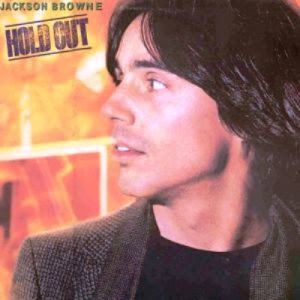
...guilty as charged! Trouble is, images like the above photo of Marc Bolan say more about what music ought to be than anything I could ever hope to express with millions of words... Which brings me to my main point. The thing I love most about Glam is its unrestrained passion. It's impossible to listen to early Roxy Music, or Bowie, or the first Eno album, etc, etc, without being moved by the raw emotional energy of the performances. Glam is also compelling to me because, in more than just literal terms, it's a post-60s phenomenon, conveying a sense that the time for the serious business of changing the world has passed. Some saw this condition as the tragic outcome of missed opportunities. But Glam filled the void with a libertine spirit and enthusiasm that fueled some of the most exciting music you'll ever hear.

On T. Rex's Electric Warrior and The Slider, two of my favorite Glam records, Marc Bolan retains his penchant for spacey psychedelia. But with an increasingly assured Tony Visconti in the smoky control booth, and a full band now playing behind Bolan (including completely daft backing harmonies from Mark Volman and Howie Kaylan of The Turtles), the dreamy feel of the music gains a renewed sense of purpose on standouts like "Ballrooms of Mars", "Cosmic Dancer", "Mystic Lady","Planet Queen" and "Rock On." One listen to the flaming guitar solo in the latter - virtually one note played repeatedly with furious abandon - is all you'll need to be convinced that Bolan was out to offer a sexed-up, raucous alternative to the clouds of depressed stagnation hanging over the early 1970s.

 T. Rex takes us to a place where dirty sweet girls boogie and ball all night in lizard leather boots. It's a world I really enjoy visiting, especially when Bolan accentuates the lusty rhythm of his own language.
T. Rex takes us to a place where dirty sweet girls boogie and ball all night in lizard leather boots. It's a world I really enjoy visiting, especially when Bolan accentuates the lusty rhythm of his own language.
'...Mild mouthed Rita, she's a chevy chase cheetah, loves everyone, everyone...'
'...You diamond browed hag, you're a gutter gaunt gangster, John Lennon knows your name and I've seen his...'
'...Girl you're good and I've got wild knees for you, on a mountin range I'm Doctor Strange for you...'
On those rare occasions when deeper meanings accompany the guitar spangled euphoria, they tend to affirm the freedom of a new unrestrained way of life. 'I danced myself right out the womb, I danced myself into the tomb, what's it like to be a loon?' This perspective, along with the unmistakable druggy feel pervading the two records, holds within it the seeds of the Glam scene's eventual self-destructive streak, but for the time being the music sounds liberated from the heavy yoke of the late 60s. 'Life's a gas,' Bolan sang as he stood on the threshold of T. Rextacy and all the excess it would entail, 'I hope it's gonna last.'

Next time: Lou, Iggy and David...














 Notwithstanding the allusion in "Sweet Jane" to 'Jack in his corset and Jane in her vest', it might be a bit of a stretch to categorize The Velvet Underground as Glam. But because Glam artists like Bowie, New York Dolls and Iggy Pop assimilated VU’s mondo bizarro skepticism towards the 60s, I tend to think of VU as a precursor to Glam. In turn, Bowie and Mick Ronson were hugely instrumental in launching the Glam years of Lou Reed’s career.
Notwithstanding the allusion in "Sweet Jane" to 'Jack in his corset and Jane in her vest', it might be a bit of a stretch to categorize The Velvet Underground as Glam. But because Glam artists like Bowie, New York Dolls and Iggy Pop assimilated VU’s mondo bizarro skepticism towards the 60s, I tend to think of VU as a precursor to Glam. In turn, Bowie and Mick Ronson were hugely instrumental in launching the Glam years of Lou Reed’s career.








 Buddy’s girlfriend, Daisy, was an arts and crafts counselor. Even now, 30 years later, I still remember Daisy’s enchanting summertime beauty. She had sandy blonde hair and lovely freckles. Daisy may be the reason freckles on a woman have always sent my heart racing. She used to come up behind me as I sat at the pottery wheel, and she’d press her chest against my back. Then she’d reach around and guide my little hands over the wet clay as it spun round ‘n round...
Buddy’s girlfriend, Daisy, was an arts and crafts counselor. Even now, 30 years later, I still remember Daisy’s enchanting summertime beauty. She had sandy blonde hair and lovely freckles. Daisy may be the reason freckles on a woman have always sent my heart racing. She used to come up behind me as I sat at the pottery wheel, and she’d press her chest against my back. Then she’d reach around and guide my little hands over the wet clay as it spun round ‘n round...


